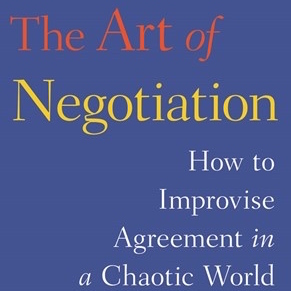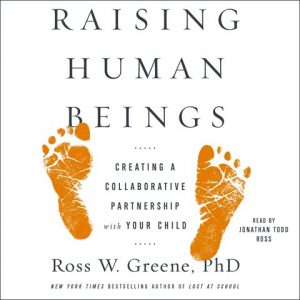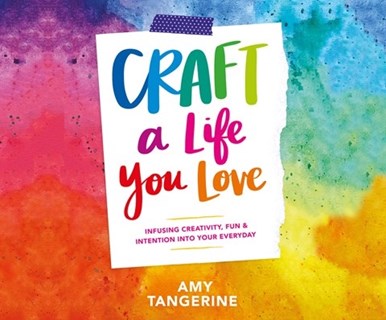 We all negotiate in many different ways to achieve what we need and want—whether that’s negotiating with other people or with actual physical barriers. When it comes to negotiating with things, our negotiation techniques can include climbing, detouring, and other physical methods of getting past what seems to stand in our way. Negotiating with people isn’t physical, however: It’s all about discussion. And discussion involves a lot of talking, listening, and consideration of what has been said, from all parties. Learning about negotiating better and more helpfully through audiobook listening can give us practice as well as good information to take into our next social, political, or work-related negotiating round.
We all negotiate in many different ways to achieve what we need and want—whether that’s negotiating with other people or with actual physical barriers. When it comes to negotiating with things, our negotiation techniques can include climbing, detouring, and other physical methods of getting past what seems to stand in our way. Negotiating with people isn’t physical, however: It’s all about discussion. And discussion involves a lot of talking, listening, and consideration of what has been said, from all parties. Learning about negotiating better and more helpfully through audiobook listening can give us practice as well as good information to take into our next social, political, or work-related negotiating round.
Jeff Cummings reads Michael Wheeler’s how-to guide, THE ART OF NEGOTIATION, with a pace and a tone that will both engage listeners’ interest as well as inspire them to give the included exercises a try. Here’s an approach to negotiation that recognizes that while we can’t all be winners all of the time, we can, indeed, find between us the best alternative given the specifics of the situation at hand.
 Learning from a master negotiator offers another audiobook-rich way to improve our own skills. Art T. Burton’s study of 19th-century lawman Bass Reeves, BLACK GUN, SILVER STAR, is actually a collection of period documents. The interpretation of these comes to us through the Earphones Award-winning narration by Ron Butler. Through his performance, listeners absorb both the facts and the context, all the better to understand how Marshall Reeves negotiated successfully to keep the peace.
Learning from a master negotiator offers another audiobook-rich way to improve our own skills. Art T. Burton’s study of 19th-century lawman Bass Reeves, BLACK GUN, SILVER STAR, is actually a collection of period documents. The interpretation of these comes to us through the Earphones Award-winning narration by Ron Butler. Through his performance, listeners absorb both the facts and the context, all the better to understand how Marshall Reeves negotiated successfully to keep the peace.
 Negotiation is at the heart of the highly political work of ambassadors. Listening to L.J. Ganser read former U.S. Ambassador to Russia Michael McFaul’s memoir, FROM COLD WAR TO HOT PEACE, listeners get to see the growth of his negotiation skills and interests from his youth through his experience on the front lines as the Soviet Union declined and the contemporary Russian state developed. Both author and narrator’s styles model negotiating tones: There is no rush, no bombast, no insistence, just the engaging pacing and correct pronunciations that can help the negotiator’s audience feel respected and a part of the process.
Negotiation is at the heart of the highly political work of ambassadors. Listening to L.J. Ganser read former U.S. Ambassador to Russia Michael McFaul’s memoir, FROM COLD WAR TO HOT PEACE, listeners get to see the growth of his negotiation skills and interests from his youth through his experience on the front lines as the Soviet Union declined and the contemporary Russian state developed. Both author and narrator’s styles model negotiating tones: There is no rush, no bombast, no insistence, just the engaging pacing and correct pronunciations that can help the negotiator’s audience feel respected and a part of the process.
 At the other end of the negotiating spectrum from international affairs is how we negotiate life with family members in our own households. In RAISING HUMAN BEINGS, parent and psychotherapist Ross W. Greene hits on the role true negotiation plays in good parenting. No, not the conditional barter system (“I’ll do this if you’ll do that”) but honest negotiation that takes into account what each person (including the child or teen) brings to the situation and how to meet each other within the limits of individual life experience and need for structure. Jonathan Todd Ross reads this one with a gentleness that underscores the message: Negotiation is about mutual support, not the assertion of power.
At the other end of the negotiating spectrum from international affairs is how we negotiate life with family members in our own households. In RAISING HUMAN BEINGS, parent and psychotherapist Ross W. Greene hits on the role true negotiation plays in good parenting. No, not the conditional barter system (“I’ll do this if you’ll do that”) but honest negotiation that takes into account what each person (including the child or teen) brings to the situation and how to meet each other within the limits of individual life experience and need for structure. Jonathan Todd Ross reads this one with a gentleness that underscores the message: Negotiation is about mutual support, not the assertion of power.
Listening to audiobooks on the subject of social skills like negotiation offers both the knowledge of the authors and the engaging human voice of the performer.






